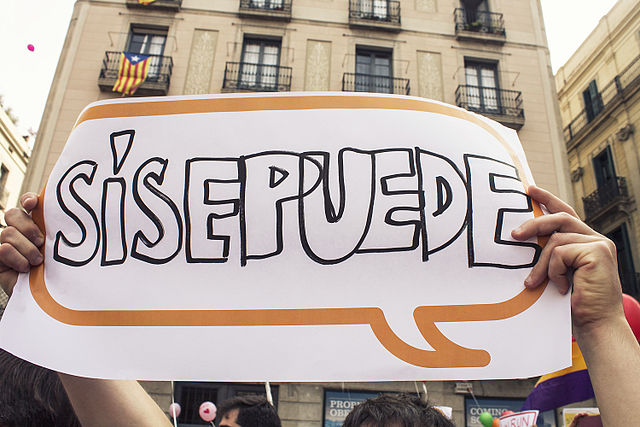Current e-Journal
-

April 24, 2023

Getting Past What’s Stopping You
In this week’s Systems Change Newsletter…
- Invitations & Announcements
- Catalytic Thinking Exercise: Getting Past What’s Stopping You
- Resources to Further Your Practice
Invitations & Announcements:
LAST CHANCE: Level Up Your Communications Skills!
Tomorrow is the day - our brand new Catalytic Listening webinar! Here’s just some of what you’ll find…
- How to find the real issue in any conflict
- How to get beyond miscommunication and frustrating conversations
- What “good listeners” do that the rest of us don’t (and what you can do about that!)
- How to listen beyond people’s drama, to help them find their power
- How to lead groups to their best selves when you have no positional authority
That’s just some of what this webinar is about. See what else you’ll learn here…
Catalytic Thinking Exercise:
Moving from Helplessness to Action
A few weeks ago, we came upon an article Hildy wrote 10 years ago for Huffington Post – a piece about “We can’t until” syndrome.
Those of us working for a more just world hear that refrain all the time.
- The time isn’t right
- We don’t have the money / people / connections
- We’re just a small organization
- We can’t tackle those big societal problems because…
We all do this about something in our lives. It may not be tackling climate change or homelessness; it may be about taking the vacation of a lifetime. Or getting in better shape.
The common theme is this:
- There is something we really want.
- We have a million reasons why we can’t go for it right now.
Those million reasons are all rooted in our assumptions and beliefs – the thinking that informs our actions (or lack thereof). Those assumptions may stem from fear, or scarcity thinking, or politics (organizational, family), or any number of factors.
Regardless of the cause, obstacles are almost always in our own minds. And we know that because what might be an insurmountable obstacle to one person is simply a blip on the radar to someone else.
Whatever the trigger, there is a path beyond the barriers our minds create. Not surprisingly, it all has to do with the questions our assumptions are answering. Which means we can ask ourselves different questions!
Try this
Write down that thing you would love to do. Now write down the reasons you think you can’t go for it.
As a child crisis nursery, we would love to tackle the issue of child homelessness in our community. Unfortunately, we can’t tackle that issue because…
-
- Our board will balk, telling us to stick to our core mission.
- We don’t have funding for that.
- We don’t have a plan – it’s all so new to us.
- Etc.
Be clear about your reasons. List them all.
Then for each of those reasons for not doing what you really want to do, ask…
What would need to be in place for that "obstacle" to no longer be an obstacle?
The board:
What would your board need to know, to be supportive? What would they need to understand? What would they need to feel, or be assured of?
The funding:
What would funders and donors need to know, in order to support that work? What would they need to believe? What would they need to understand?
The plan:
What would you need to know, in order to have a plan? What would you need to have? What would you need to be assured of?
What these questions make clear is that the things that stop us are almost always mental constructs – things we believe are true, but might just be our beliefs.
Obstacles are only obstacles because we think they are obstacles. Because as Hildy notes in The Pollyanna Principles, unless something is physically impossible, it is possible.
Obstacles are only obstacles because we think of them as obstacles.
When you stop seeing “obstacles” and “stumbling blocks” and “challenges,” and you start seeing only unmet conditions for success – things that need to happen so that you can accomplish our goals – you are freeing yourself from chains that you, yourself, have created.
That is the reason the very first tenet of Catalytic Thinking is this: Our power to create results lies in our power to create favorable cause-and-effect conditions towards our dreams.
So jot down that thing you really want to do. And figure out what needs to be in place for that dream to be reality.
Si Se Puede mage was originally posted to Flickr by BarcelonaEnComu at https://www.flickr.com/photos/131426765@N03/1880380006 licensed under the Creative Commons Attribution-Share Alike 2.0 Generic license.Image Credit: Brahim Guedich, CC BY-SA 4.0 <https://creativecommons.org/licenses/by-sa/4.0
Resources to Further Your Practice:
- WATCH: This oldie-but-goodie TED talk shows the difference one person can make Watch here…
- LEARN: The next webinar in our series will be about Community Impact Planning – how organizations can turn their hopes into reality. If you want to be notified when that session is announced, let us know here…
- READ: There is power in simply telling people, “I’m glad you’re here.” Read it here…
Help Keep Our Programs Freely Available
Creating the Future’s eJournal is free. And there are no financial barriers to our classes – tuition is whatever folks can afford. Because we never want money to stand in the way of people learning.
If you value our content and our approach, please donate here – and please consider becoming a monthly supporter of our work.
eJournal Archives:
If you’re new to our eJournal, or just want to remind yourself of past practice exercises we’ve shared, check out our eJournal archives here.
SUBSCRIBE
to get this e-Journal
Creating the Future is a 501(c)(3) tax exempt organization in the U.S.A

